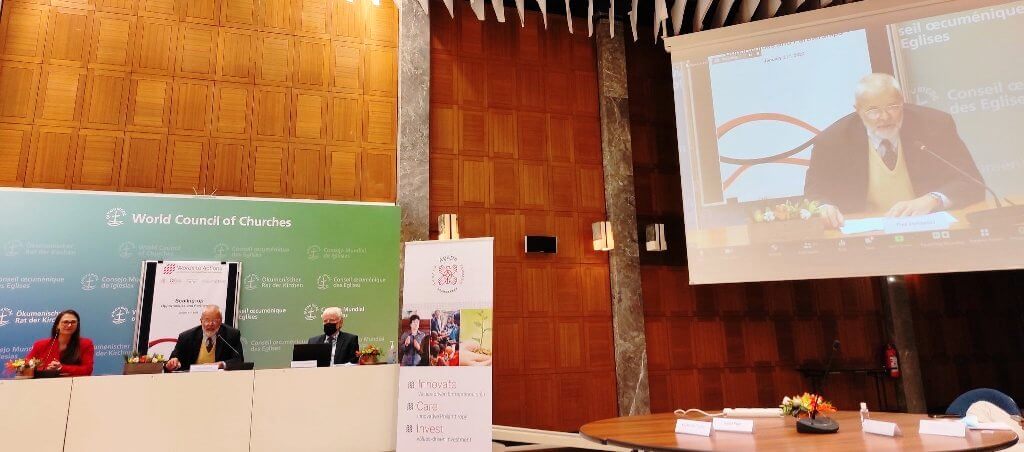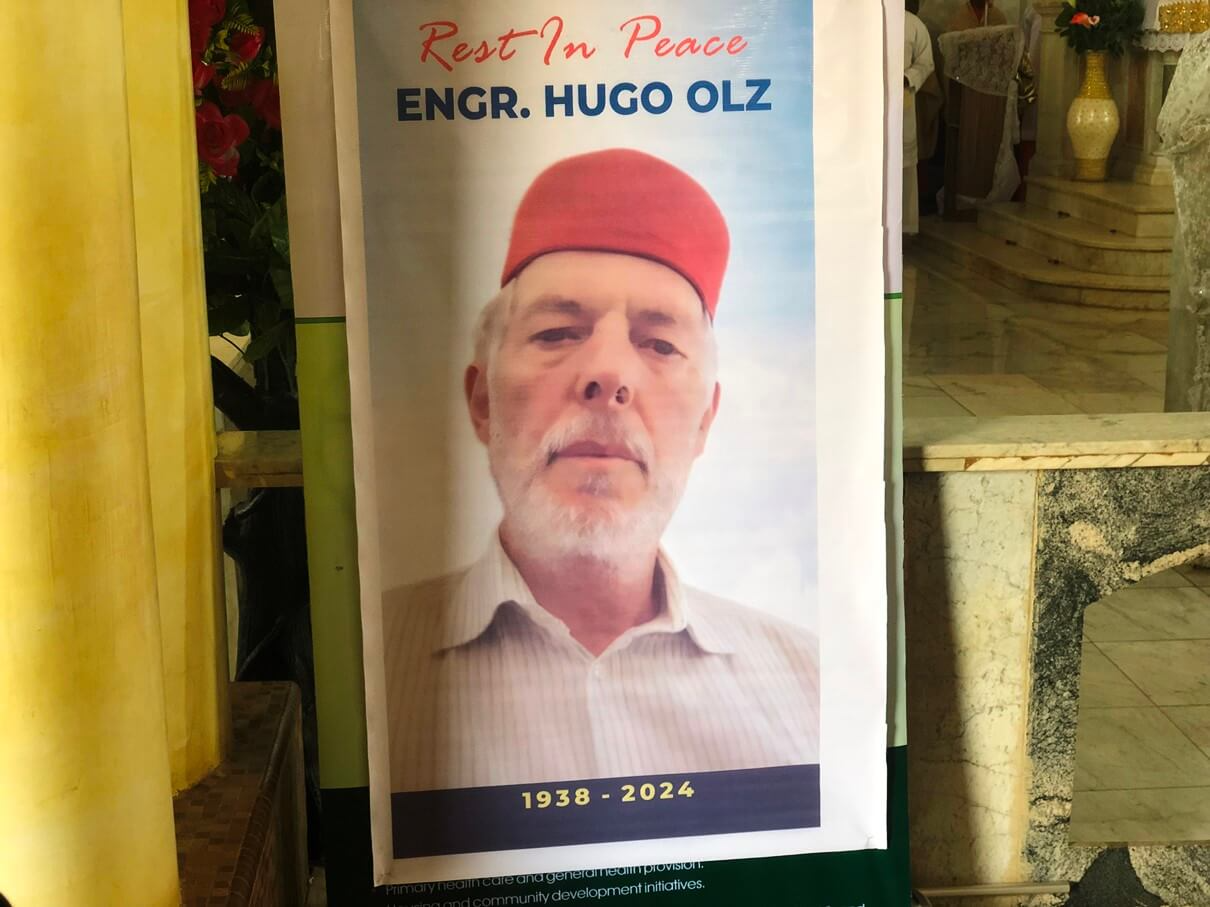
24th January 2022
Globethics.net was delighted to take part in the Geneva Agape Foundation’s 5th Faith-Based Investment Conference on Friday 21 January 2022. The event brought together speakers and participants from all over the world in dialogue about ethical and sustainable finance and investment.
Keynote speeches from NGO directors, finance experts and religious leaders gave the backdrop for the conference. The importance of regulatory bodies and international institutions supporting sustainable finance initiatives in order to achieve the SDGs was discussed, as well as the responsibility of faiths and religious institutions in shaping the use and impact of finance on human society. Moderating one of the discussions, Globethics.net Director Obiora Ike called on spiritual leaders and faith communities to raise their voices and embrace their role in bringing ethics to a world in need.
With this encouragement, participants were then split into small groups. Led by members of the Geneva Agape Foundation, the WEA, the WCC, FaithInvest and Globethics.net, groups workshopped solutions and shared success stories and best practices for faith-based investment in their different contexts.
Globethics.net Deputy Executive Director Lucy Howe López moderated one such session. Following group introductions and a sharing of each participant’s motivation for participation in this important discussion, Lucy presented Globethics’ mission and values and introduced the African Church Assets Programme (ACAP). While the current focus of Globethics.net lies in the integration of ethics in education, our projects and courses on the subjects of Social Responsibility and Sustainable Development and Responsible Leadership remain a priority.
Recognising that the only solution to become sustainable was through ethical sustainable investment and financing, the All Africa Conference of Churches initiated ACAP in 2015. Co-funded by Bread for Life and Globethics.net, the project has since then embodied this conference’s aim of “Words to Actions” through its different phases. Asset mapping has allowed participating churches to take inventory of the wealth of resources they have available. In turn, the asset management phase empowers them to handle these resources responsibly and to hire the right, qualified people to do so.
Currently, ACAP is working on developing ethical investment guidelines and advocacy in the context of the key differences between countries, the situation of churches in each region and nation and the existence of corruption. The ongoing goal is to build ethical investment and financing from within while maintaining respect for human and environmental rights.
With the context of ACAP as a sustainable solution for ethical investment and finance practices, other members of the group then shared their own experiences and insight on the subject. There was a recognition of the need for an ACAP-type project elsewhere in the world. In the Philippines, for example, the wealth of assets left by American missionaries meets a lack of knowledge and mindset to put those resources to use to support the congregations, communities and leaders who most need it.
Participants highlighted the important potential of leveraging new technologies and small businesses, the bedrock of global economies, to drive sustainability. A framework was proposed in which an advisory board would guide stakeholders in sustainable investing and finance management. Also raised was the opportunity to leverage the education, skills and passion of [young] people returning from abroad to their homelands and mobilising local communities to participate in these investment projects.
We were reminded of the importance of holding governments accountable in policymaking, taxation and long-term planning to ensure global systems support local systems, as well as given food for thought on how best to build trusted relationships with churches and other participants in programmes such as ACAP. Trust and transparency are key in any business transaction - and particularly in those based on ethical values.
Finally, the group touched on the concept of return of investment in this context. While financing is a concern in our profit-motivated world, the need to define the real bottom-line became apparent, with social good being the desired ROI, rather than monetary profit. Following these principles, solutions to ethical and sustainable finance can be developed.
Further keynote speeches were given in the second half of the day, which were discussed actively in later workgroups. Concluding the conference, Professor Paul Dembinski, Director of the Observatoire de la Finance in Geneva, shared his expert insight on the future of sustainable finance, the SDGs and faiths’ role in driving this: “Put money at service of the real economy, partner with values".




